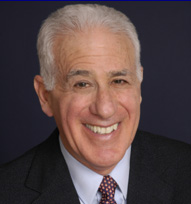

Lawyers Negotiate All The Time. Why Do They Need Mediators?
Lawyers often settle cases without using mediators. But sometimes, bringing a neutral into the negotiating process can be beneficial. Here are some of the ways:
- In litigation, the goal, as Charlie Sheen might say, is – Winning! So when litigators negotiate, they often assert their views in adversarial terms. But the goal of mediation is resolution – getting the other side to say “yes.” This allows lawyers to become problem-solvers, and their communications with each other change.
- Litigators are sometimes wary of suggesting settlement to opposing counsel for fear of appearing weak, or there may be communication problems. In such circumstances, attorneys can exercise the “John Smith gambit” by asking a mediator to contact the other side and see if they are interested in mediating.
- Mediation promotes settlement by bringing decision-makers directly into the negotiating process. Clients usually are not present when their lawyers negotiate. But in mediation, clients have an opportunity to explain their point of view directly to the opposing decision-maker, and to hear their opponent’s perspective. Thus, mediation can give clients a more nuanced view of the case and a better understanding of the other side’s objectives, which increases the likelihood of resolution.
- Scientists have found that the presence of an observer influences the phenomenon being observed. Similarly, in mediation, the mere presence of a neutral can affect the negotiating process. For instance, it is more difficult to maintain an unreasonable position face-to-face in a neutral’s presence than in telephone, email or print communications.
- When a client is unreasonable or unrealistic, the mediator can talk to him or her in ways their attorney sometimes cannot. This can be a big benefit for attorneys, who risk losing clients if they bring up weaknesses in the case. Also, the client may be more willing to hear about the strengths and weaknesses of their case from a neutral party.
- Parties and counsel frequently have different perceptions of the facts and relevant law. Mediation allows them to explain their point of view to the other side and to gain a clearer understanding of how the other side sees the case, which helps remove impediments to settlement.
- Mediation can provide an opportunity for parties and lawyers to vent emotions without harming the prospects for settlement. Parties and counsel are sometimes angry at the other side or simply don’t like them. By allowing people to express their emotions in caucus, and by giving them an empathetic hearing, mediators can lower the emotional temperature of a case and clear the way for parties to make reasoned decisions on the possible terms of settlement.
- By listening to clients’ stories empathetically, mediators can give clients a “day in court” that is often more satisfying than testifying in an actual court. Clients who feel heard are more likely to settle.
- When attorneys negotiate, pointing out weaknesses in the opponent’s case is often ineffective. Opposing counsel just raise counter-arguments. But a mediator conveying the same information is more likely to be heard.
- Lawyers will often be more candid and flexible when they deal with a neutral they trust than when they deal directly with each other. They can explore the strengths and weaknesses of their case, focus on their underlying interests and disclose factors unrelated to the lawsuit that affect settlement, such as internal settlement constraints and personality issues. Such frank discussions allow mediators to identify impediments to settlement and deal with them constructively.
- People forfeit a degree of objectivity when they litigate. They tend to interpret new evidence in ways that confirm their viewpoint; when confronted with information that contradicts their point of view, people tend to ignore, discount or distinguish it. Mediators can correct for both of these human traits by offering unbiased views of the law, evidence, credibility of a story and likely trial outcomes.
- Mediation can assure confidentiality. Statements made during settlement negotiations are generally privileged when offered to prove liability or damages but are admissible when offered for another purpose. See, for example, Federal Rule of Evidence 408 and New York CPLR section 4547. However, when parties mediate pursuant to a well-drafted confidentiality agreement, statements made during mediation are neither admissible nor discoverable.
- A mediator can help the parties generate and consider solutions that might not have occurred to them in settlement negotiations. Mediators can present settlement options as their own ideas, which gives lawyers cover to test options and even make concessions without appearing “weak.” 14. Even when resolution is not achieved initially, mediators can help parties identify legal and factual issues that need to be addressed and develop efficient plans for resolving them.
- Even when resolution is not achieved initially, mediators can help parties identify legal and factual issues that need to be addressed and develop efficient plans for resolving them.
Copyright Richard S. Weil June 2012